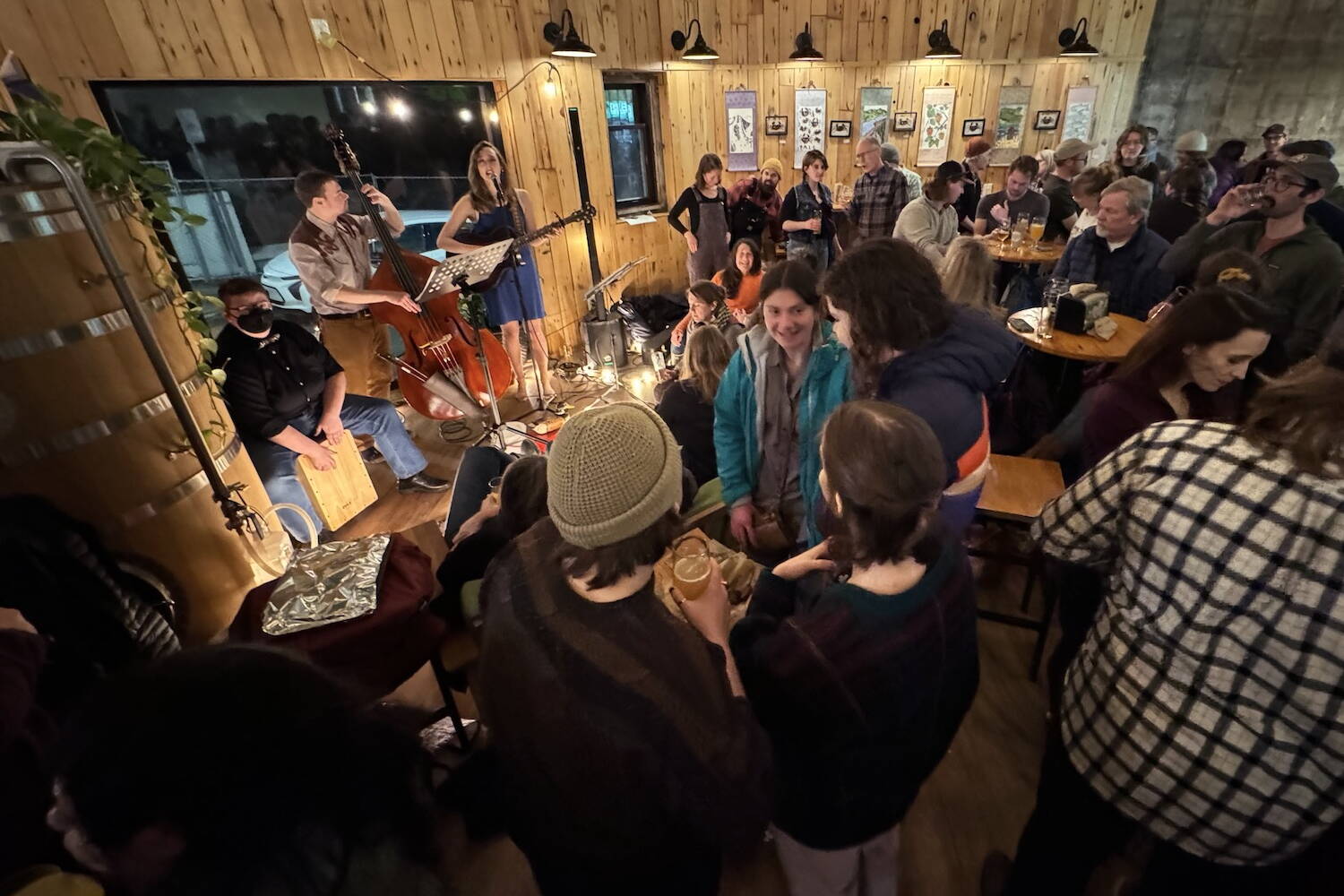A brewery, a meadery and a kombucha manufacturer are suing Alaska’s state alcohol regulator over a newly revised law that limits them to four live entertainment events per year.
The lawsuit, filed Tuesday in Anchorage Superior Court, claims the state is violating the free-speech rights of the three businesses and is a violation of the Alaska Constitution’s equal-protection clause.
In the complaint, attorneys for the Pacific Legal Foundation, a libertarian-leaning California firm representing the businesses, ask a state judge to declare the rule unconstitutional and issue an order stopping its enforcement.
Jason Davis, owner of Sweetgale Meadworks and Cider House in Homer, is one of the plaintiffs.
“It’s frustrating as a small business, especially in the winter months,” he said.
His business barely breaks even during the winter, he said, and having live events — music, standup comedy, or something else — could draw people in.
“But the state of Alaska has this law that, as I understand it, was created just in order to protect bar owners because they have a very strong lobby,” he said.
Joan Wilson, director of the Alaska Alcohol and Marijuana Control Office and a named defendant, declined comment after being informed of the lawsuit. The Alaska Department of Law also declined comment, as did the director of Alaska CHARR, the state’s leading alcohol trade group.
Senate Bill 9, passed by the Alaska Legislature and signed into law by Gov. Mike Dunleavy in October 2022, set those entertainment limits and actually represented an increase — before its passage, bars, distilleries, mead makers and wineries were prohibited from holding live events or games.
Now, they can hold up to four live events per license per year, with the permission of the state’s alcohol regulator. Three have taken place so far, Wilson said.
Anna Brawley, now a member of the Anchorage Assembly, was a lead consultant in the writing of SB 9. On Wednesday, she said she remembers the four-event limit as being a compromise between bar owners and alcohol manufacturers such as breweries and distilleries.
Manufacturers can get around the limit by buying a restaurant alcohol license, which has no limit on the number of events per year, but Davis said that’s not practical for him; he believes that in order to be eligible for a restaurant license, he would have to make more than half his money from serving food, rather than alcohol.
Attorney Donna Matias of the Pacific Legal Foundation said of the businesses that for First Amendment purposes, “they shouldn’t be required to run a restaurant if they don’t want to run a restaurant.”
In the text of SB 9, legislators said restricting alcohol is necessary “to promote the health and safety of the people of the state.”
The lawsuit questions how restrictions on entertainment benefit health and safety.
“The public health, safety, and welfare of the people of Alaska is not advanced by prohibiting plaintiffs from fully exercising their free speech rights under state law,” it says in part.
If the lawsuit succeeds, breweries, distilleries, and other alcohol manufacturers will still face limits on seating locations, serving sizes and operating hours that bars don’t have.
“I don’t mind those limits, personally. I think they’re kind of weird, but they’re not unfair,” Davis said.
“Alaska feels like a libertarian state, and yet we have a government that tells us where we can sit in a brewery,” he said.
Peter Micciche, the state senator who guided SB 9 through the Legislature after 10 years of struggle, is now out of the Legislature and serving as mayor of the Kenai Peninsula Borough.
At the time of the bill’s passage, he said it represented a compromise between alcohol manufacturers, distributors and retailers.
Informed of the lawsuit on Wednesday, he said by text message, “I understand their frustration, since I share it with them. We got what we could after a long fight … and hopefully opened the door to improvements in the future. Not a big fan of controlling competition through statute.”
Lee Ellis, president of the Brewers Guild of Alaska, also participated in the drafting of SB 9. He said the guild’s goal is to keep working with the Legislature and other parts of the alcohol industry.
“I don’t think that a lawsuit is the most productive way to go about it,” he said.
• James Brooks is a longtime Alaska reporter, having previously worked at the Anchorage Daily News, Juneau Empire, Kodiak Mirror and Fairbanks Daily News-Miner. This article originally appeared online at alaskabeacon.com. Alaska Beacon, an affiliate of States Newsroom, is an independent, nonpartisan news organization focused on connecting Alaskans to their state government.

